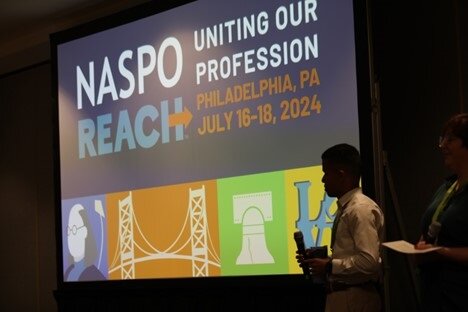Authored by Jack Heffernan, Research Coordinator at NASPO
State and local governments, like other professions, face a worker shortage. In an analysis of the Bureau of Labor Statistics, the National League of Cities, for example, reveals that local government employment declined by more than 300,000 workers between March 2020 and March 2022. Consequently, talent management has been the number three priority on the National Association of State Procurement Officials’ (NASPO) Top 10 Priorities for 2024 and remains a focus for many other city, local, and state organizations.
City leaders are seeking innovative methods to promote employee recruitment and retention without compromising talent. One state procurement office offers a model for developing college interns who can step into full-time positions immediately upon graduation.

North Carolina’s procurement office is facing a workforce shortage, as many workers are on the verge of retirement, State Procurement Officer David O’Neal said in July at NASPO’s REACH Conference. When North Carolina’s procurement division reviewed its hiring practices a few years ago, it recognized that it faced a self-imposed obstacle — the state’s job descriptions at the time, like those of other state and local governments, required a four-year degree and two years of experience for its entry-level procurement position.
To address this obstacle, it created an internship program, unlike the common low-level summer job.
The program allows college students to work for the procurement office years before graduation. Interns’ tasks include managing contracts and participating in negotiations — not just grabbing coffee or making copies. Interns work 40 hours per week in summer months and 25 hours per week during school months — nearing a full year of work while staying within work hour requirements for students. If interns complete two cycles before graduation, the procurement office considers the degree and experience requirements complete. “It wasn’t the innovation that everybody thinks of and goes directly to technology,” O’Neal said. “It’s, ‘how can we play within our rules and figure out a way to future-proof our known problem of recruitment and retention?”
Opportunities After College
The program has opened post-graduation opportunities for five current interns. One of them is Ian Fox, a business administration student at North Carolina State University. Fox joined the procurement office last year as a junior through a NASPO internship grant. “I don’t just sit and do one thing. I can manage a contract, have discussions with vendors, negotiate,” Fox said at the REACH Conference.
Fox manages the procurement office’s statewide furniture contract. With furniture manufacturing being one of the state’s major industries, the contract includes 131 suppliers. “They’re required to do meaningful work,” O’Neal said. “You can’t be scared. You’ve got to allow the people who are coming into the office to do the work that they’re geared to do, and Ian is a great example of that.”
Skills-Based Hiring
One increasingly popular solution to workforce shortages, “skills-based hiring,” involves reclassifying job requirements to expand candidate applicant pools to those without 4-year degrees. North Carolina’s internship program tackles the applicant shortage from a different vantage point by facilitating more pre-graduation experience. “Am I able to get Ian to come work for the state of North Carolina if he’s got to have a four-year college degree and two years’ experience of public procurement? Nope, and we [would be] missing out tremendously,” O’Neal said.
The program’s benefits can extend beyond the workforce development potential and even the significant workload that the interns handle. Fox’s formal course of study does not center on procurement, and skills like eProcurement were new to him when he joined the office. But he said he has attempted to leverage soft skills to provide additional value. For example, he said that today’s college students prioritize maximizing efficiency and have less patience for the “how we’ve always done it” mentality. “I can learn a lot of the things they’ve known how to do for twenty-plus years. But also, they can learn from me how to best handle those hard conversations,” Fox said.
According to O’Neal, experienced employees and managers tend to avoid placing too much responsibility on the shoulders of interns, whose procurement career includes more than 12 years in the public sector. “You can’t think that way any longer. You have to be innovative in your thought processes as well and allow them to do meaningful work.”
Cities are perhaps best situated to develop current and future employees who are already familiar with local dynamics and bring the soft skills Fox mentioned. With some innovative thinking and trust in fresh talent, city leaders can reap these immediate benefits while addressing the worker shortage with a work-ready pool of recent college graduates.








